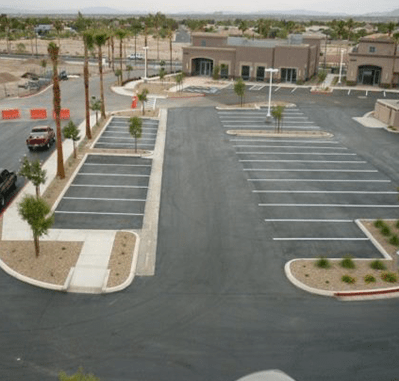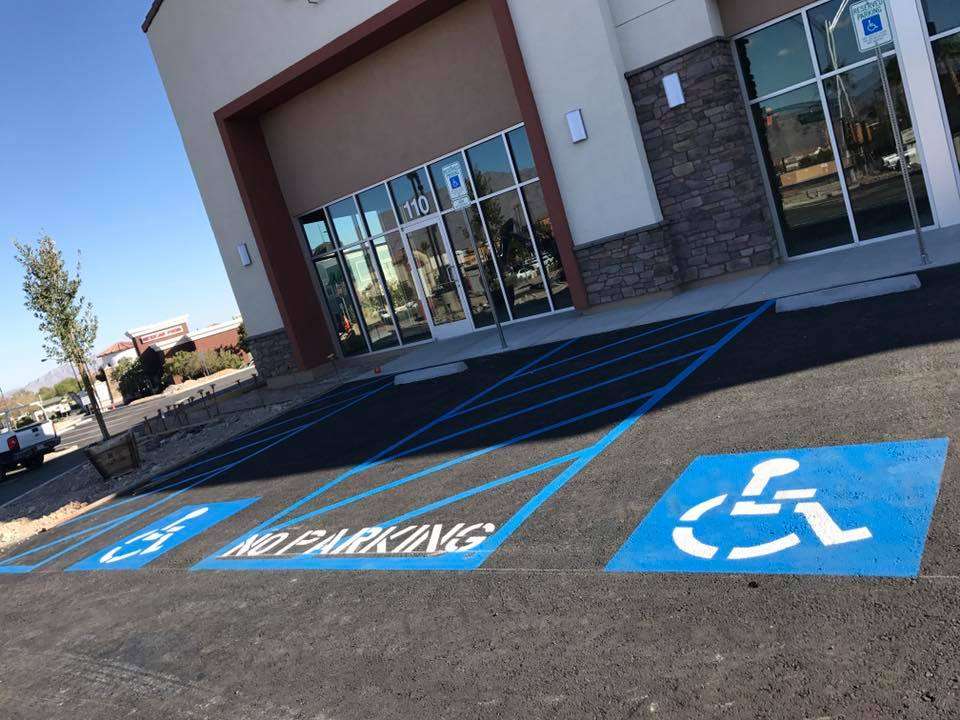
Asphalt Maintenance Tips – How to Keep My Pavement Clean
 Asphalt pavement can provide many years of service, but it must be properly maintained if it is to reach its full life expectancy. When many people think of asphalt maintenance, they think of crack repairs, new parking lot striping or pothole repairs. Although all of these are important parts of a parking lot maintenance program, one step that is often overlooked is keeping the pavement clean.
Asphalt pavement can provide many years of service, but it must be properly maintained if it is to reach its full life expectancy. When many people think of asphalt maintenance, they think of crack repairs, new parking lot striping or pothole repairs. Although all of these are important parts of a parking lot maintenance program, one step that is often overlooked is keeping the pavement clean.
Why Is a Clean Pavement Important?
The first reason to keep your pavement clean is that it will make your property more attractive. If there are piles of trash or miniature sand dunes scattered around your parking lot, your business may seem less appealing. However, the primary reason that you need to keep your pavement clean is that a clean parking lot can last longer and require fewer repairs.
Consider a pile of paper cups, cardboard boxes, sand, gravel, plastic bottles or paper wrappers. Even in the dry environment of Las Vegas, moisture will accumulate beneath the debris. This moisture will accelerate the deterioration of the pavement, and if there is even a tiny crack, the moisture will seep beneath the pavement and attack the foundation. On those rare occasions when the temperature drops below freezing, the trapped water expands, inflicting even more damage on the foundation. It is quite common to remove a pile of debris that has been in place for many months and discover numerous small cracks in the pavement. Asphalt contractors feel that water penetration is the leading cause of alligator cracking, potholes and foundation failure.
Another reason to keep your pavement clean is that any automotive fluids that have leaked on the pavement need to be removed promptly. Asphalt, oil, gas, transmission fluid, grease and brake fluid are all derived from petroleum. The distillation process separates these derivatives, but when they come into contact with each other, they will try to reunite. When they try to reunite with the asphalt pavement, they destroy the binder, leaving the pavement crumbly, soft and extremely susceptible to damage.
If you have ever used sandpaper or seen someone sandblast a metal object, you know how well a gritty substance can remove material. Sand or dirt on your pavement can be easily tracked by the tires on vehicles. The weight and motion of the vehicles provide the energy, and the sand provides the abrasive material. Together, they function as an effective sander that can scar your pavement and/or strip its sealcoating.
What Are Some Tips for Keeping Pavement Clean?
The precise steps will depend on the volume of traffic, your budget and your specific needs. However, the following tips can help you make cleaning your pavement part of your routine maintenance program.
• Conduct frequent inspections of your pavement. It is very easy to see your pavement without really looking at it. Take the time to look closely at your pavement to identify early signs of damage, cleanliness issues and potential sources of debris.
• Many paving companies also offer asphalt maintenance services. Interview several asphalt contractors to find one who offers professional removal of oil stains. Schedule a periodic cleaning; inspect your pavement before and after the cleaning to make sure that all stains are properly removed.
• Paving companies usually recommend frequent sweeping of asphalt pavement. If you have a very small parking lot, an employee with a push broom may be able to handle the task. However, for larger areas, consider hiring a professional sweeping service. Some asphalt contractors offer this service, but there are also companies who specialize in sweeping parking lots. Depending on your situation, you may want to have your pavement swept nightly, weekly or monthly.
• Maintain your asphalt sealcoating. Sealcoating makes it easier to clean asphalt pavement, but it also slows the penetration of automotive fluids, giving you a little more time to have oil stains removed. Most sealcoating contractors advise their customers to have new pavement sealed within the first year. Depending on the type and volume of traffic your pavement receives, you will probably need to have fresh sealcoating applied every two to three years. However, you may need to have sealcoating applied annually or just every five years.
If your looking for an asphalt contractor in the Las Vegas area, contact Affordable Striping & Sealing. We specialize in parking lot maintenance, including sealcoating, crack repairs, parking lot striping and pavement marking, bumper blocks, stenciling, traffic signs and parking lot design. We use the best techniques and materials to ensure that the results will meet or exceed your expectations. For a free quote, use the online request form or call 702-222-9009.
Recent FAQs
https://affordablestriping.com/answer/how-property-managers-can-plan-for-sealcoating/



